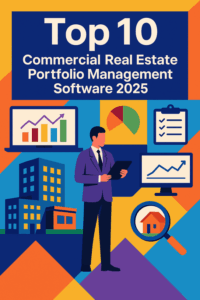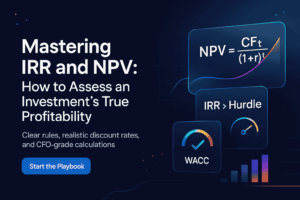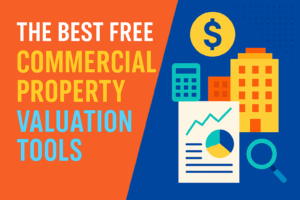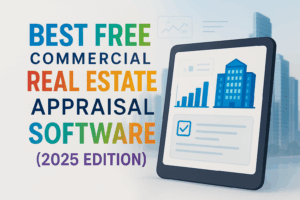If your next investment is going to be your first or your fiftieth, there will always be something that you wish you had considered. Especially in 2022 when everyone is on edge. Unfortunately, there is no way to know what the future may hold but there is a way to plan for nearly anything the future may throw at you. We have compiled a list of tips that we strongly recommend implementing into your real estate investments. If you implement at least some of these tips, it will greatly improve your ability to be resilient to anything this economy may throw at you.
- Never wait for the crash to happen. Instead, look for deals that satisfy your risk tolerance. As tempting as it may be to wait (especially in this market), there is no way to know when the market is going to crash. Therefore, instead of cutting yourself out of the market completely, implement your risk tolerance into your purchase price. This may make finding a property more difficult during a high demand market, but you won’t be completely cutting yourself out of the market and missing out on great opportunities.
- Is the property going to cashflow after all expenses and debt services? I thought this one to be common sense but recently I have seen investors purchasing residential properties with a negative cashflow because they are betting on appreciation. This is an extremely risky game because if their bet is wrong, they have nothing to fall back on when the economy shifts. Which it will eventually happen.
- Real estate is a moving target. Don’t aim where the target is but rather where it is going. This means a simple napkin analysis is just not going to cut it. Unless of course you are willing to leave money on the table. Below is a list of factors you should consider about real estate to greatly improve your chances of success.
- Investment Tools: You need to have a solid analysis tool that allows you the freedom to account for any variable. Doing the classic, potential gross income, minus estimated vacancy percent, minus operating expenses, to get your net operating income is exposing yourself to many unknowns. This method is a great starting point but once you find a property or currently own the property, you need to have a way to calculate what is going to happen in the future down to a penny. If you do not currently have a program that provides you this level of service, check out our product, Compass.
- Macroeconomics Data: When investing, make sure you are completely in the loop on what is happening at a macroeconomic level. Even though real estate is localized, it is greatly influenced by macroeconomics. If you don’t stay informed, you will be doing yourself a disservice. Some great sources to help keep you informed are listed below.
- National Migration Data:
- Federal Reserve News:
- National Employment trends:
- National Inflation Index:
- National Migration Data:
- Microeconomic: It is essential that you stay informed with what is happening in each city, state, and county that you invest in. Each region has their own corks that can make or break an investment. Unfortunately, there is no, “one stop shop” that keeps all this information readily available. However, we can recommend what you should be looking for and ways that you can find this information. When it comes to microeconomics, there are three factors you should consider before purchasing a property.
- The first thing to keep in mind is what type of companies are in the region and what companies are planning to move into the area. A lot of this information is easily accessible through a simple google search. However, to find out what companies are moving into the area may be a little more difficult. We recommend getting connected with local real estate brokers, go to city council meetings, and get to know some of the people from the city planning committee.
- The second factor to consider is laws within the area. Make sure you know what type laws are in place for that region. There are some cities, counties, and states that are trying to implement or have currently implemented rent controls. There are even some states that prevent or highly regulate certain types of leases and property uses. For example, Fort Collins, Colorado has been attempting to require all landlords who own a property to get a license to lease their property without a property manager. If this law passes this will be an added expense in managing your own properties in this area. This expense will in turn increase the lease rates in the area to cover these costs.
- The Final Factor to consider is understand the taxes in your area. How much is the mill levy and how much is that region allowed to increase the amount they can charge you in property tax. Some places have caps that prevent an unlimited increase and others do not. Make sure you are well informed.
- The first thing to keep in mind is what type of companies are in the region and what companies are planning to move into the area. A lot of this information is easily accessible through a simple google search. However, to find out what companies are moving into the area may be a little more difficult. We recommend getting connected with local real estate brokers, go to city council meetings, and get to know some of the people from the city planning committee.
- Investment Tools: You need to have a solid analysis tool that allows you the freedom to account for any variable. Doing the classic, potential gross income, minus estimated vacancy percent, minus operating expenses, to get your net operating income is exposing yourself to many unknowns. This method is a great starting point but once you find a property or currently own the property, you need to have a way to calculate what is going to happen in the future down to a penny. If you do not currently have a program that provides you this level of service, check out our product, Compass.
- If you are not doing your own property management, make sure you find a great management company. Your management company can make or break the returns that you receive on a project. There are many ways to incentivize your property management company to increase their performance but if the company you chose isn’t good to begin with, you are setting yourself up for failure.
We talk about this in more detail in our article, “Tips Landlords Should Know When Hiring a Property Manager.” For now, let’s talk about why it’s so important to have a solid property management company. When you pick a management company, you are entrusting them with so much more than just finding a tenant. You are entrusting them with the success or failure of that asset. Make sure that you are diligent and extremely picky on who you choose. Not all management companies are the same. Below is a list of a few questions you should consider when finding a management company.- Are they able to provide references? Make sure that the management company can provide you references that you can call and talk to about their experience with them. That way you can hear firsthand on what they can or cannot achieve.
- What is their business strategy? There are countless investment strategies out there and many of them achieve amazing results. Unfortunately, there is not a one size fits all for all property types, and situations. Make sure that they can provide a solid plan of action for your property that coincides with your investment strategy.
- Do they focus on preventing roll over or are they trying to get the highest rent possible? This is an extremely important question to ask and the answer to this question depends greatly on the property, your risk tolerance and what you are wanting to achieve. In many cases, it is better to prevent roll over than it is to get the highest rents possible. This is best explained through an example. Imagine you have a tenant paying $1,200 a month but if you put the property on the market when the lease ends you can charge $1300 a month but it could take up to two months to fill the space. There are a lot of hidden expenses in roll over like cleaning, patching walls, tenant improvements, and a countless other expense. On top of that, you lose out on two months of revenue. Does the extra $1200 ($100 a month * 12 months) a year of income supersede the amount of expenses you would experience in having a roll over?
- Who are their maintenance contacts? When something breaks, your management company will contact someone to come see what the problem is. Typically, this is someone they have had a long-standing relationship with. Even though they have this relationship, it doesn’t mean that they hold the same ethical standard as the management company. (Some managers may not have a vendors list. They may expect you to provide your own vendors. If this is the case, this information is not relevant.) This is best explained through an example. Let’s pretend the A/C unit went out and they contact an HVAC company to come see what the problem is. This company may have a good relationship with the property manager, but they just see each referral from the management company as an opportunity for a big payout when they get a call. In this scenario, they tell you and your manager that the A/C needs replaced. The manager will most likely trust the HVAC companies’ opinion and tell you that the A/C needs replaced and how much that will cost. In reality, the A/C unit may have only needed a new relay switch that could of cost $200 to fix. Instead, you are now paying thousands of dollars to have the entire A/C unit replaced. This deception could greatly impact your ROI. The management company doesn’t care about how much you are paying in expenses because their income is based of effective gross income which is before any expenses are taken into account. This is why we recomend getting their vendors list. This will provide you the opportunity to go and check all of the vendors google reviews. That way you can see how other people’s experiences have been with these companies.
- Are they able to provide references? Make sure that the management company can provide you references that you can call and talk to about their experience with them. That way you can hear firsthand on what they can or cannot achieve.
- Your network is your net worth. I never understood the quote, “It’s not about what you know it’s who you know”. I think this quote is misleading and we have that idea all backwards. Just because you know a lot of people doesn’t mean that they know you well enough to help you succeed. The quote truly should be, “It’s not about what you know, it’s about who knows you.” If someone truly knows you, then they know what you can achieve, and they care enough to help you succeed. Make sure that you are working on building these relationships with everyone. You will never know who may throw an opportunity your way.
- Finally, find a mentor. It doesn’t matter if you have been doing this for 30 years or just started investing; having a mentor is an invaluable tool for any business setting. Having a mentor will benefit you in three ways. The first, is to have someone who will help hold you accountable and keep you on track. It is so easy for something bad to happen and us to want to give up. Having a mentor that has your back to help pick you up and get moving again is invaluable. The next benefit is we are all humans and as humans we all make mistakes. It is always good to have someone you can bounce ideas off. That way you have someone who can find holes in your plans and greatly decrease your probability of failure. Finally, having a mentor is a great way to learn of new techniques, ideas, tricks that you would of never of known about without them. Real estate, although one of the oldest assets in existence, it is always changing and adapting through time. No one knows every trick in the book and the moment that you think you know it all, is the moment you close your mind to new ideas that can create opportunity.













